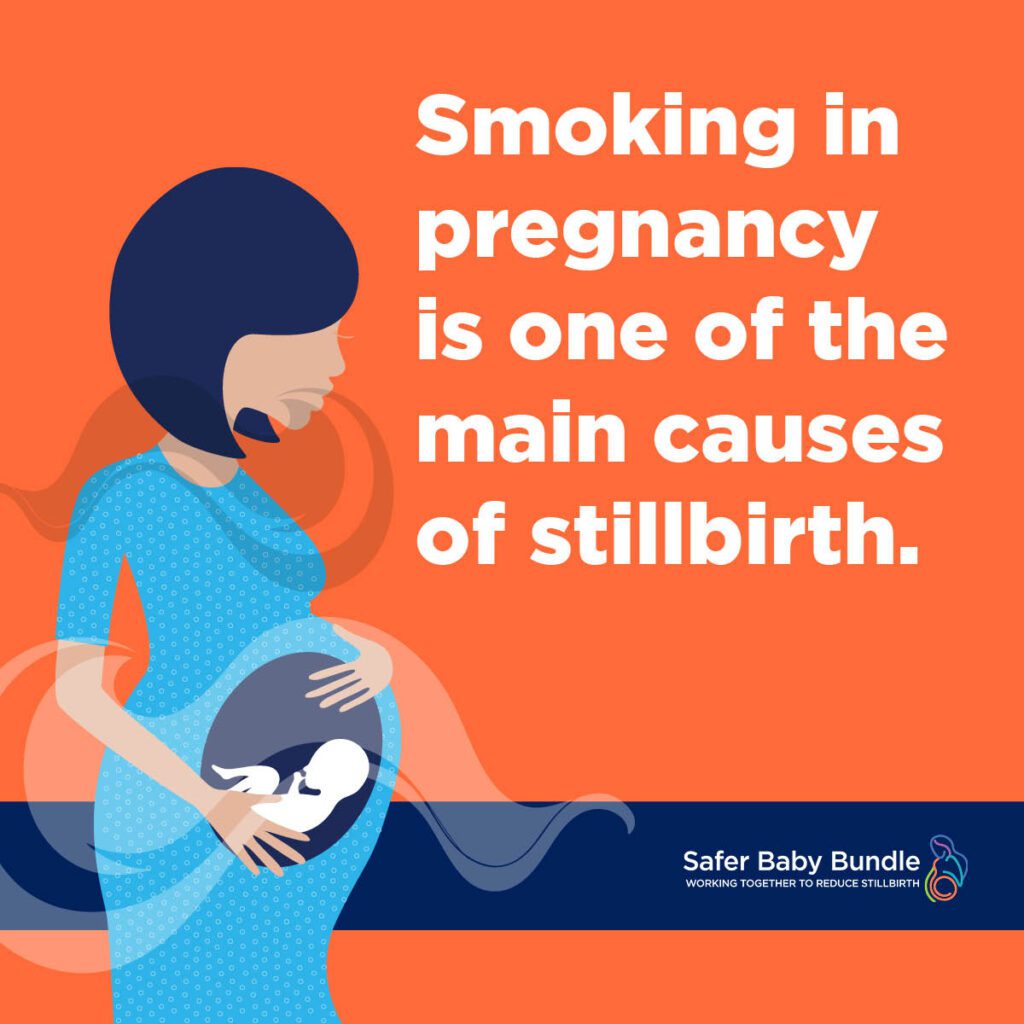
Smoking in pregnancy is one of the major contributors to stillbirth. Every puff of a cigarette has an immediate negative effect on the baby. Carbon monoxide replaces some of the oxygen in the blood, and nicotine also reduces the flow of blood through the umbilical cord.
Your health care professional will ask you about smoking, and offer you a Carbon Monoxide (CO) screening breath test to measure if you have been exposed to unsafe levels of CO from smoke or other sources, including faulty cooking and heating appliances.
Quitting at any time during pregnancy reduces the harm to your baby. However, planning to quit as early as you can means a better start in life for your baby.
Ask your healthcare professional about advice and support on how to stop smoking and available services to support quitting for you or your partner.
Quitting early is best, but stopping at any time in your pregnancy will benefit you and your baby.
Smoking during pregnancy increases your risk of miscarriage or stillbirth. Your baby may be born premature (before 37 weeks’ gestation), there is a risk of Sudden Unexplained Death of an Infant (SUDI or cot death), low birthweight and breathing problems.
Your midwife, GP or obstetrician can help if you are thinking about quitting. They will suggest counselling services to help address your triggers
and for some women, quit smoking products may be needed.
The most common counselling service for pregnant women is Quitline, which is staffed by specially trained counsellors who will support you in trying
to quit - not make you feel guilty. Contact your local Quitline for free on 13 78 48.
Call Quitline on 13 7848 or visit quitline.org.au